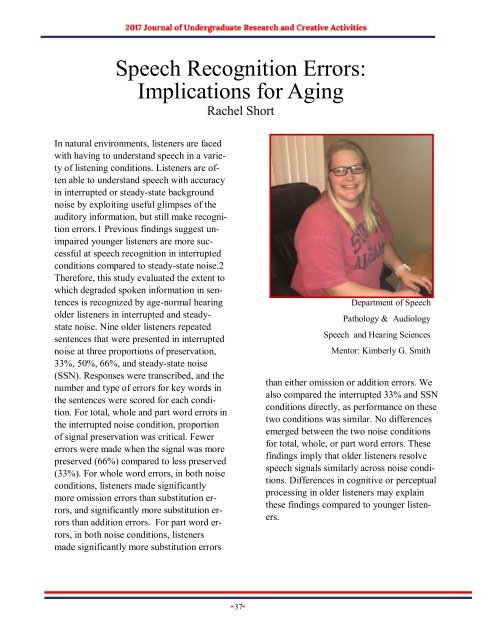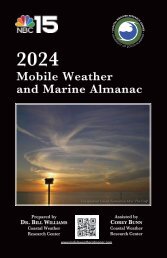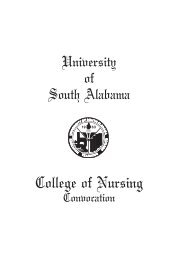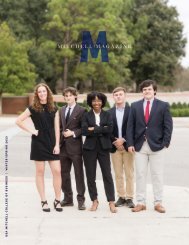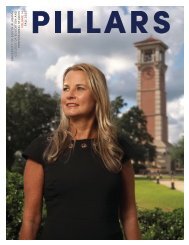JOURACA_SP_2017
You also want an ePaper? Increase the reach of your titles
YUMPU automatically turns print PDFs into web optimized ePapers that Google loves.
Speech Recognition Errors:<br />
Implications for Aging<br />
Rachel Short<br />
In natural environments, listeners are faced<br />
with having to understand speech in a variety<br />
of listening conditions. Listeners are often<br />
able to understand speech with accuracy<br />
in interrupted or steady-state background<br />
noise by exploiting useful glimpses of the<br />
auditory information, but still make recognition<br />
errors.1 Previous findings suggest unimpaired<br />
younger listeners are more successful<br />
at speech recognition in interrupted<br />
conditions compared to steady-state noise.2<br />
Therefore, this study evaluated the extent to<br />
which degraded spoken information in sentences<br />
is recognized by age-normal hearing<br />
older listeners in interrupted and steadystate<br />
noise. Nine older listeners repeated<br />
sentences that were presented in interrupted<br />
noise at three proportions of preservation,<br />
33%, 50%, 66%, and steady-state noise<br />
(SSN). Responses were transcribed, and the<br />
number and type of errors for key words in<br />
the sentences were scored for each condition.<br />
For total, whole and part word errors in<br />
the interrupted noise condition, proportion<br />
of signal preservation was critical. Fewer<br />
errors were made when the signal was more<br />
preserved (66%) compared to less preserved<br />
(33%). For whole word errors, in both noise<br />
conditions, listeners made significantly<br />
more omission errors than substitution errors,<br />
and significantly more substitution errors<br />
than addition errors. For part word errors,<br />
in both noise conditions, listeners<br />
made significantly more substitution errors<br />
Department of Speech<br />
Pathology & Audiology<br />
Speech and Hearing Sciences<br />
Mentor: Kimberly G. Smith<br />
than either omission or addition errors. We<br />
also compared the interrupted 33% and SSN<br />
conditions directly, as performance on these<br />
two conditions was similar. No differences<br />
emerged between the two noise conditions<br />
for total, whole, or part word errors. These<br />
findings imply that older listeners resolve<br />
speech signals similarly across noise conditions.<br />
Differences in cognitive or perceptual<br />
processing in older listeners may explain<br />
these findings compared to younger listeners.<br />
37


